When your HVAC system suddenly breaks down, emergency HVAC repair becomes more than a convenience, it’s a necessity.
A broken air conditioner on a hot summer day or a failed heater during winter can make your home uncomfortable and even dangerous for some family members.
We understand how stressful these situations can be, especially if you have household members who are sensitive to temperature changes or require special medical equipment.
If you need emergency HVAC repair, the first step is to turn off your system completely by switching off the breakers that supply power to the unit.
This simple action can prevent further damage while you wait for professional help. Allowing your air conditioner to thaw out if it's frozen can also be helpful before technicians arrive.
While waiting for emergency services, consider temporary solutions to maintain comfort. This might include using portable heaters or air conditioners, staying with family or friends, or setting up cooling stations in your home.
Remember that what constitutes an emergency varies based on your situation - if someone in your home uses oxygen or is prone to heat stress, your repair needs should be treated with greater urgency.
This guide walks you through immediate steps to take, common warning signs, basic troubleshooting, and how to choose the right emergency HVAC provider.
The following topics are designed to help homeowners respond calmly and effectively when urgent AC or heating repairs are needed:
- What to do immediately during an HVAC emergency
- DIY troubleshooting before calling for emergency HVAC repair
- How to choose the right emergency HVAC service provider
- Preventing future HVAC emergencies
What to do immediately during an HVAC emergency
When your HVAC system suddenly fails, knowing how to respond quickly can prevent further damage and keep your family safe. Taking the right immediate actions can make a significant difference while waiting for professional help.
Common signs your HVAC problem is an emergency
Pay attention to warning signs that indicate your HVAC system needs emergency attention. Strange noises like grinding, banging, or high-pitched squealing suggest mechanical problems. Unusual odors, especially burning smells or gas odors, require immediate action as they may indicate electrical issues or gas leaks.
Complete system failure or sudden shutdowns are obvious emergencies, especially during extreme weather. Watch for water leaks around your unit, which could signal condensate drain problems or refrigerant leaks.
Dramatic temperature fluctuations or the system blowing warm air when set to cool (or vice versa) often indicates serious malfunctions. Unusually high energy bills can also be a sign of an HVAC system working inefficiently due to a developing problem.
How to stay safe and prevent HVAC damage during an emergency
Your first priority during an HVAC emergency is keeping everyone safe. If you smell gas, evacuate immediately and call your gas company from a safe location. Don't use any electrical switches, phones, or anything that could create a spark.
For electrical burning smells, shut off the system immediately using the procedures in the next section. Clear the area around your HVAC equipment of any flammable materials.
Keep children and pets away from the malfunctioning unit. If water is leaking, place towels or buckets to contain the water and prevent damage to your floors and walls.
Don't attempt complex repairs yourself - this can void warranties and create safety hazards. Instead, focus on containment while waiting for emergency service.
Shutting down power to the HVAC system
Properly shutting down your HVAC system is crucial to prevent further damage. First, locate your thermostat and turn it to the "off" position. This is your first line of defense in an emergency.
Next, find your circuit breaker panel and switch off the breaker labeled for your HVAC system. If you have a fuse box instead, remove the appropriate fuse. This cuts power to the entire system.
For additional safety, locate the disconnect switch near your outdoor condenser unit and turn it off. This dedicated switch provides another layer of protection.
If your system uses gas, you may need to locate the gas shutoff valve near your furnace and turn it perpendicular to the gas line. This stops the flow of gas to your heating system.
Document when you shut off these components to help the repair technician understand the timeline of events when they arrive.
DIY troubleshooting before calling for emergency HVAC repair
According to the U.S. Department of Energy, heating and cooling systems account for approximately 43% of total energy use in U.S. residential buildings, making system efficiency and reliability a critical part of home safety and cost control.
Before spending money on emergency HVAC services, there are several troubleshooting steps you can take yourself. These simple checks might solve the problem without needing professional help.
Checking the thermostat and settings
Start by examining your thermostat, as it's often the culprit behind HVAC issues. Make sure it's set to the correct mode (heating or cooling) depending on what you need. Check that the temperature setting is appropriate—at least 5 degrees above room temperature for heating or 5 degrees below for cooling.
Replace batteries if your thermostat is battery-powered. Dead batteries can cause the system to stop working completely.
Verify that the fan setting is correct. It should be set to "Auto" for normal operation or "On" if you want continuous air circulation.
If you have a programmable thermostat, check that the schedule hasn't been changed accidentally. Sometimes a power outage can reset programming.
Try turning the system off completely for 5 minutes, then turn it back on. This simple reset can sometimes resolve minor glitches.
How to check breakers, fuses, and wiring during an HVAC emergency
HVAC problems often stem from electrical issues. Locate your electrical panel and check if any breakers related to your HVAC system have tripped. If so, flip them off completely before switching them back on.
Inspect the disconnect switch near your outdoor unit to ensure it hasn't been turned off accidentally. This safety switch sometimes gets flipped during yard work.
Look for any visible damage to wiring around both indoor and outdoor units. Frayed or chewed wires can cause system failures.
Check the condensate drain switch if your system has one. If the condensate pan is full, this safety switch may have turned off your system to prevent water damage.
For older systems with fuses instead of breakers, check if any fuses have blown and replace them with the correct amperage if needed.
How to inspect the air handler and blower safely
The air handler houses important components that can cause system failure. First, check your air filter—a clogged filter restricts airflow and can shut down modern systems with safety features.
Listen for unusual noises coming from the blower. Squealing might indicate a belt problem, while grinding could mean bearing issues.
Make sure the blower door is properly closed. Many systems have a safety switch that prevents operation if this door is open.
Check the condensate drain line for clogs. Pour a cup of vinegar down the line to clear minor blockages that might be triggering safety shutoffs.
Inspect the evaporator coil access panel if possible. While you shouldn't touch the coil, you can check if there's visible ice buildup, which indicates airflow or refrigerant problems.
How to test your heating and cooling system components
For cooling problems, examine the outdoor condenser unit. Clear away any debris, leaves, or plants within 2 feet of the unit. Restricted airflow can cause the system to malfunction.
Make sure the outdoor fan is running when the system is in cooling mode. If it's not, this could indicate a capacitor or motor problem.
For heating issues, check if the pilot light is lit on gas furnaces. Follow manufacturer instructions for relighting if needed.
Listen for the ignition sequence on your furnace. You should hear a click followed by the sound of the burners igniting.
For electric heating systems, verify that the heating elements are working by feeling for warm air. No heat could indicate failed heating elements or a tripped high-temperature safety switch.
How to choose the right emergency HVAC service provider
When your heating or cooling system fails unexpectedly, finding a reliable emergency HVAC service provider quickly becomes crucial. The right contractor can make the difference between a quick fix and a prolonged uncomfortable situation in your home.
Why availability and fast response matter for emergency HVAC service
Emergency HVAC services should be available 24/7, including weekends and holidays. This round-the-clock availability ensures help when you need it most, whether it's the middle of the night or during a holiday gathering.
Look for companies that promise specific response times rather than vague estimates. Many reputable emergency HVAC services commit to arriving within 1-3 hours for true emergencies.
Before an emergency happens, we recommend creating a list of local HVAC contractors with their emergency contact numbers and typical response times. This preparation saves precious time when your system fails.
Check online reviews specifically mentioning emergency response experiences. Previous customers often highlight how quickly technicians arrived and whether the company honored their promised timeframes.
How to verify HVAC licensing and technician experience
Always confirm that the HVAC service provider holds proper licensing for your state or locality. Licensed technicians have met minimum training requirements and understand local building codes.
Experience matters significantly in emergency repairs. Technicians who have worked with various systems for years can diagnose problems faster and implement effective solutions immediately.
Look for these credentials:
- EPA certification (required for handling refrigerants)
- NATE certification (North American Technician Excellence)
- Manufacturer certifications for your specific equipment
Ask about the company's experience with your particular HVAC system brand and model. Specialized knowledge of your equipment type can lead to more efficient repairs during emergencies.
Understanding emergency HVAC services offered
Not all AC repair companies offer comprehensive emergency services. Before committing, clarify exactly what constitutes an "emergency service" according to their policy.
Ask these specific questions:
- Do they charge extra fees for after-hours service calls?
- Is diagnostic assessment included in the emergency service fee?
- Do they bring common replacement parts on their trucks?
- Will they provide a written estimate before beginning work?
The best emergency HVAC services offer temporary solutions when complete repairs aren't immediately possible. This might include providing portable heaters or AC units during extended repair periods.
Check if the company offers emergency services for all system types, including central air, heat pumps, furnaces, and boilers. Some contractors specialize in certain systems and may not service all equipment during emergencies.
Preventing future HVAC emergencies
The best way to avoid emergency HVAC repairs is to be proactive rather than reactive. Regular attention to your system can save you from unexpected breakdowns and costly emergency service calls.
Why preventive HVAC maintenance helps avoid emergencies
Preventive maintenance is the cornerstone of a reliable HVAC system. We recommend scheduling professional tune-ups twice yearly - once before summer for air conditioning and once before winter for heating.
During these visits, technicians will:
- Clean or replace air filters
- Check refrigerant levels
- Inspect electrical connections
- Lubricate moving parts
- Test thermostat functionality
- Clean condenser and evaporator coils
Many HVAC companies offer maintenance plans that can save you money while ensuring your system receives regular care. These plans often include priority scheduling and discounts on repairs.
Don't wait until your system fails completely. Strange noises, reduced airflow, or inconsistent temperatures are early warning signs that deserve attention.
Which HVAC parts to upgrade to prevent emergency failures
Upgrading key components can prevent emergency breakdowns before they happen. The average HVAC system lasts 15-20 years, but individual parts may need replacement sooner.
Consider these strategic upgrades:
- Smart thermostats: Improve efficiency and provide alerts about potential problems
- Air filters: Upgrade to higher MERV ratings for better filtration
- Capacitors: Replace these every 5-7 years before they fail
- Fan motors: Upgrade to variable speed models for better performance
Heat pumps and air conditioning units often give warning signs before complete failure. Listen for unusual sounds and watch for performance changes.
We've found that investing in quality components now costs less than emergency repairs later.
How to prepare for future HVAC emergencies
Knowing how to respond to HVAC issues can prevent minor problems from becoming major emergencies. We suggest creating a simple emergency plan for your system.
Learn these basic skills:
- How to safely shut off your system at the thermostat
- Where your circuit breaker for the HVAC system is located
- How to change air filters properly
- How to recognize gas leak symptoms (if applicable)
Keep your HVAC technician's contact information readily available. Services like JustAnswer offer 24/7 expert advice when you're unsure if a situation requires immediate attention.
Store your system's manual in an accessible place or download a digital copy. Understanding basic maintenance tasks empowers you to address minor issues before they escalate.
Conclusion
Emergency HVAC situations demand fast, informed action, from safely shutting down your system to identifying critical warning signs and knowing when to call a professional.
Proactive steps like checking your thermostat, inspecting breakers, and using temporary solutions can help stabilize conditions while you wait for expert help. Choosing a licensed, responsive service provider ensures the issue is resolved quickly and correctly.
For long-term peace of mind, routine maintenance and system upgrades are your best defense against future breakdowns. If you’re facing urgent AC or heating issues, contact TCM Heating & Cooling for reliable 24/7 emergency HVAC repair services.

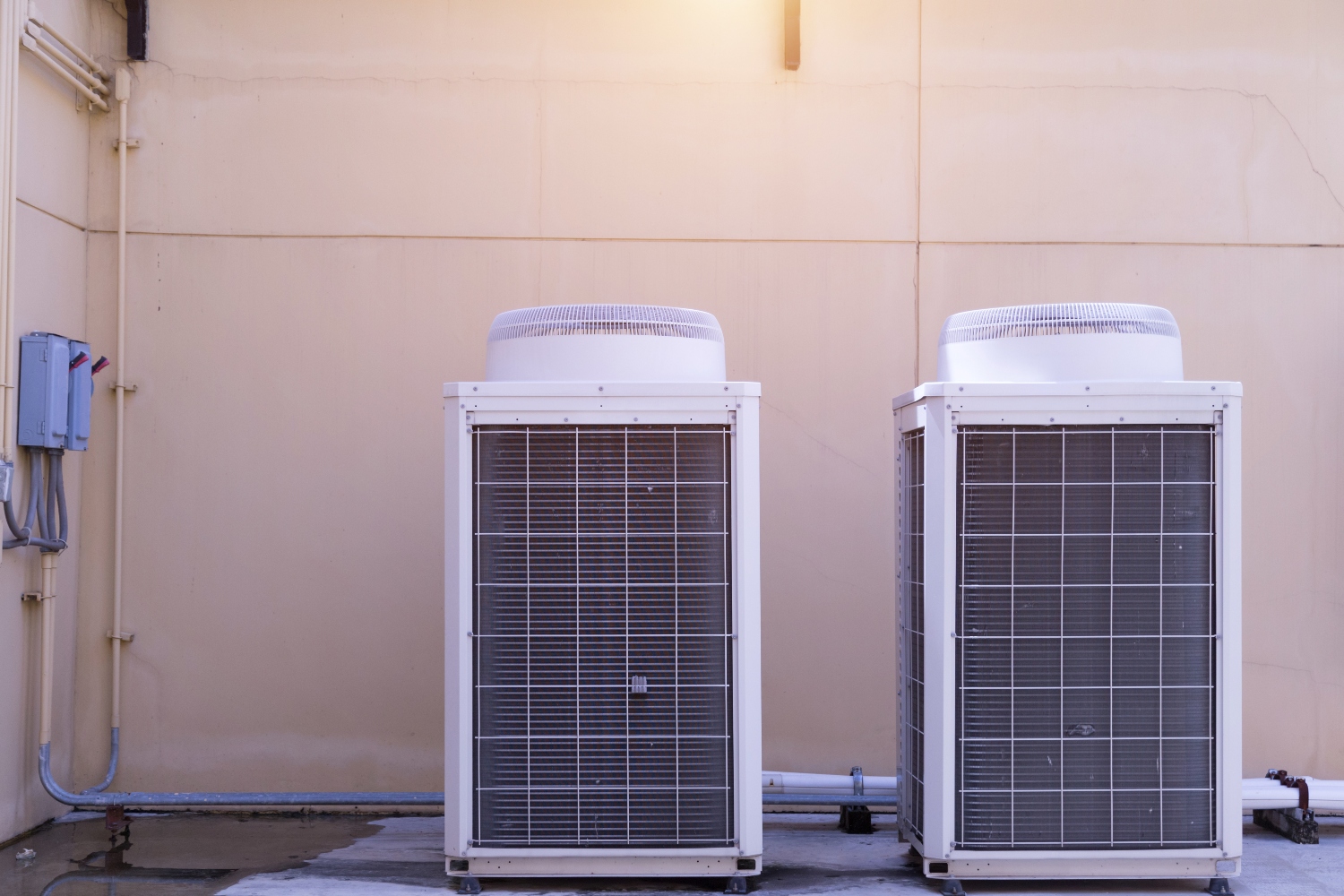
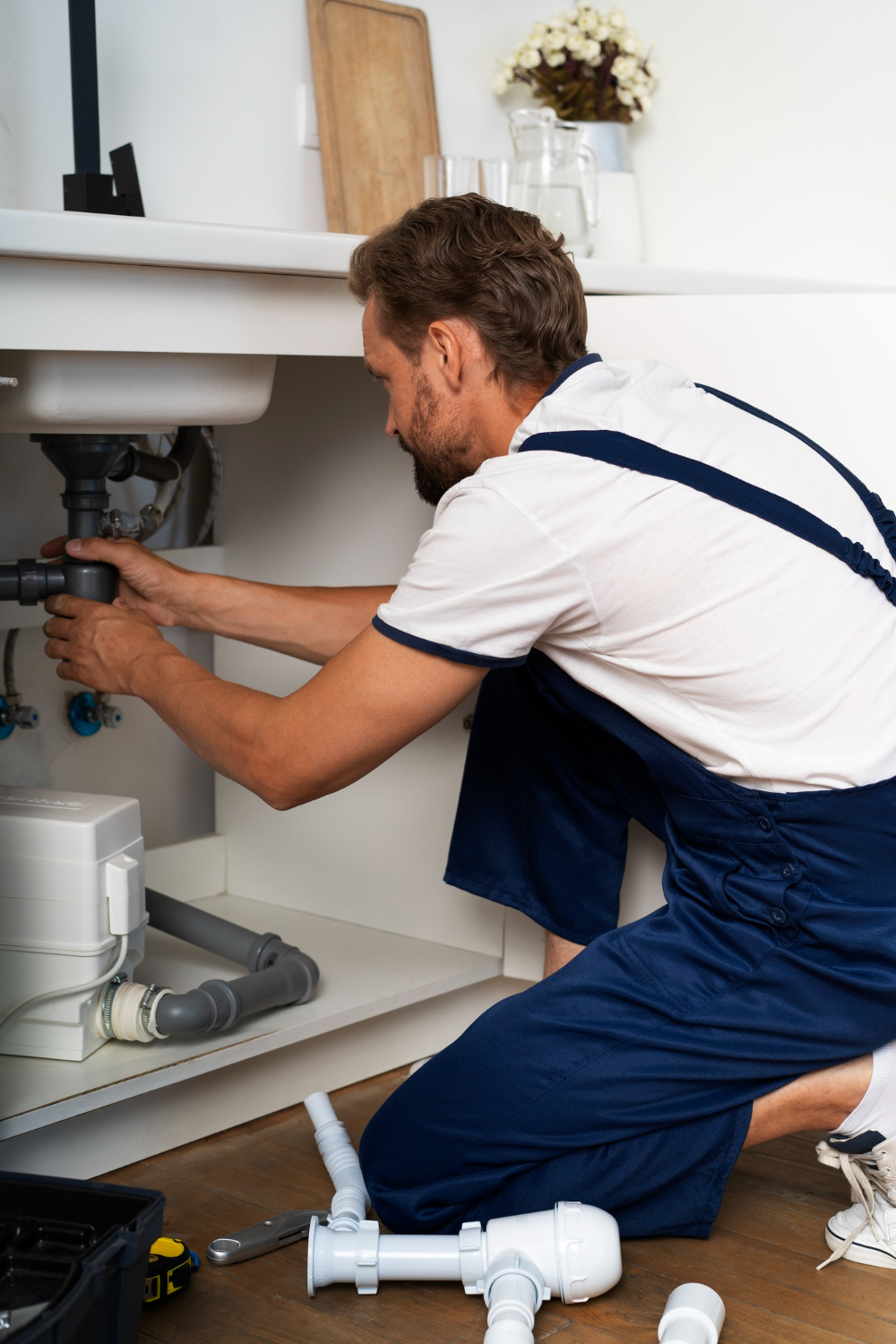
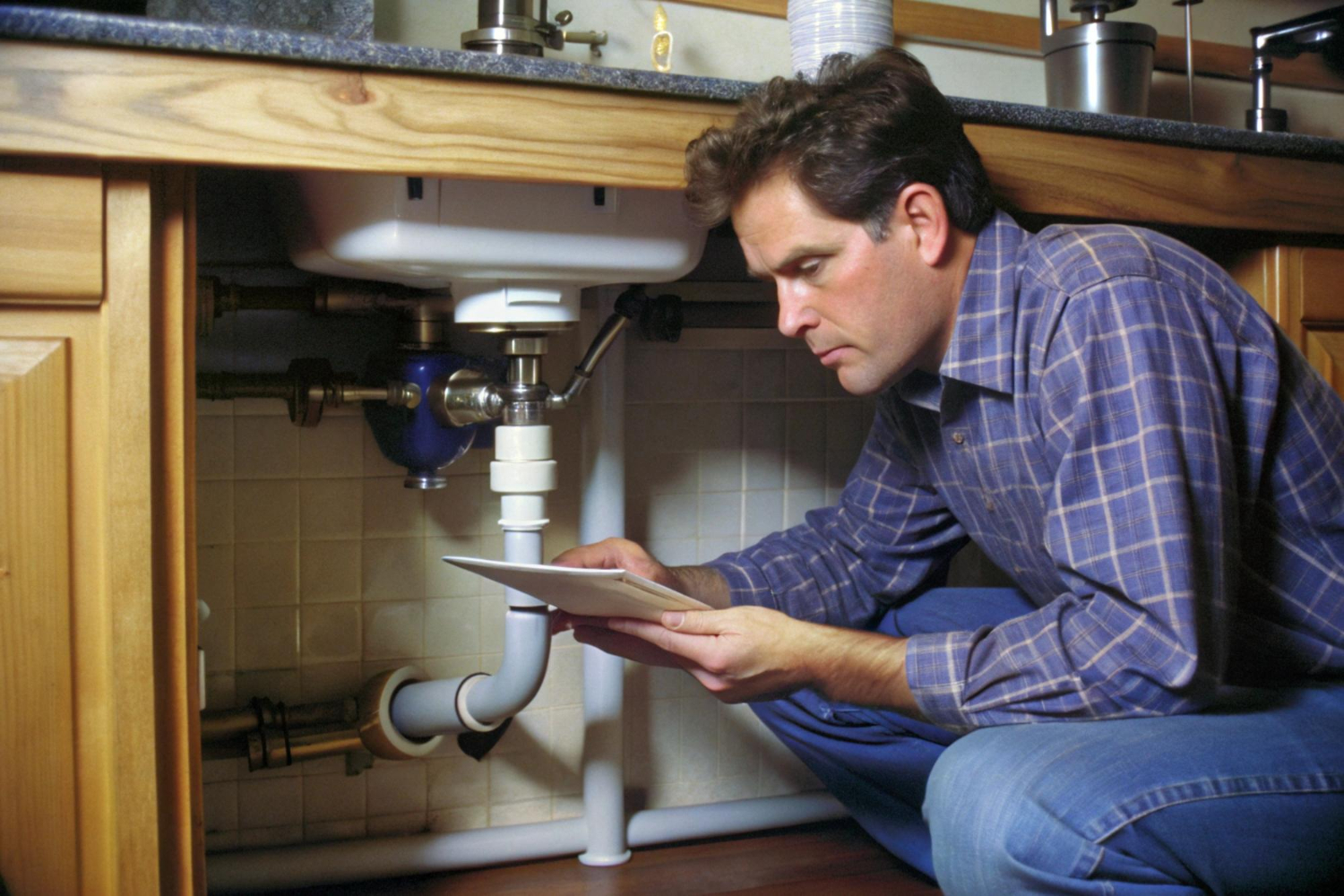
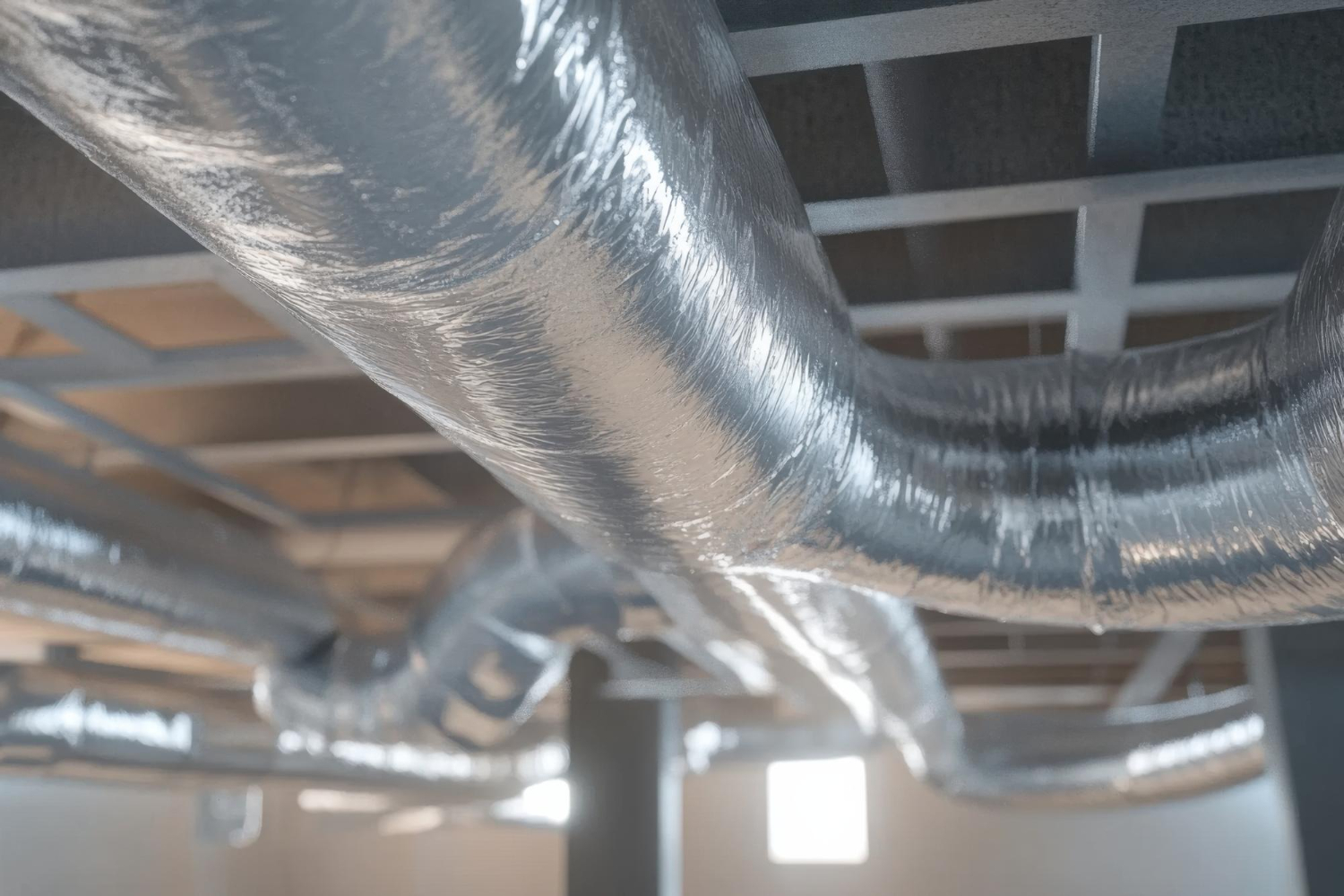
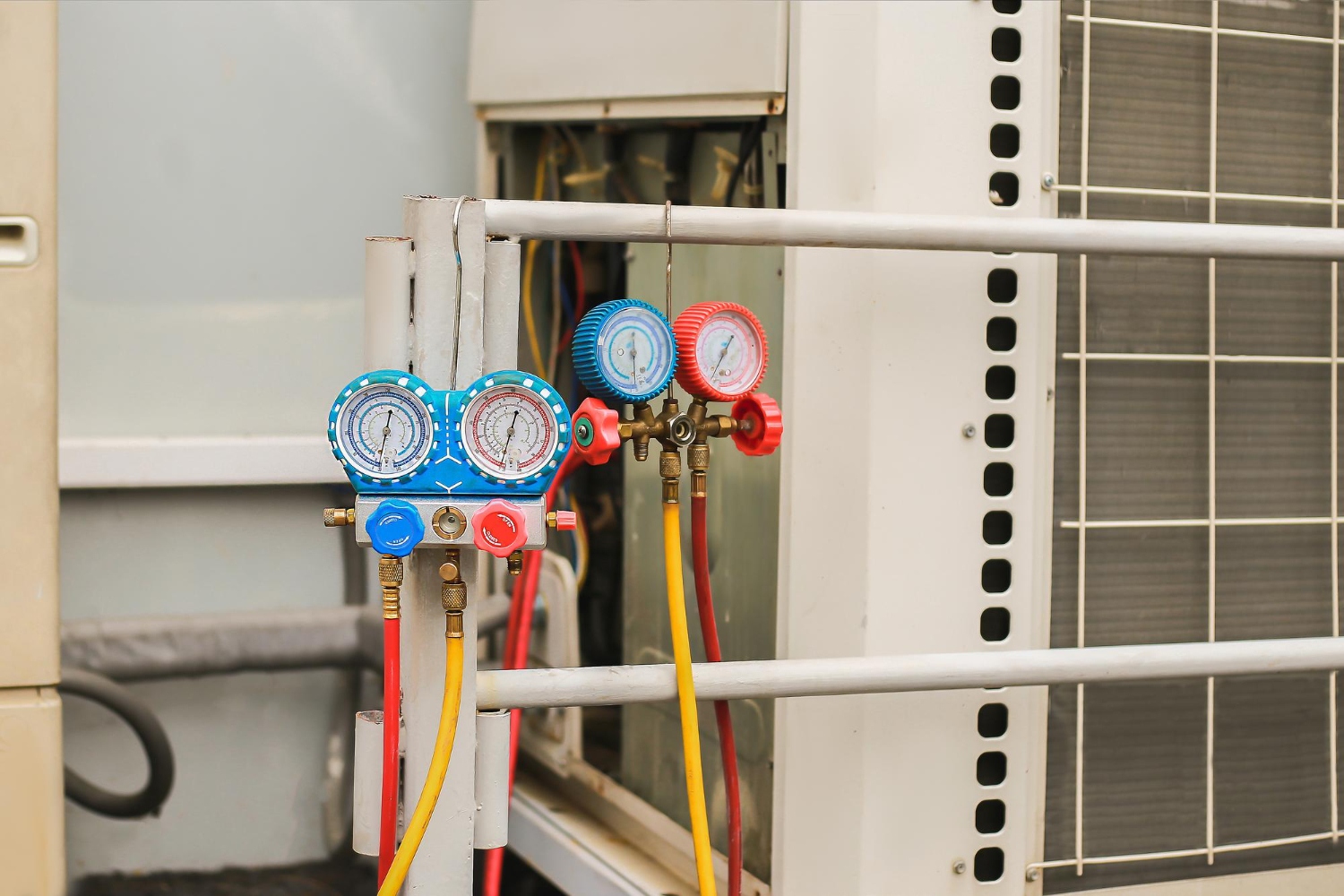
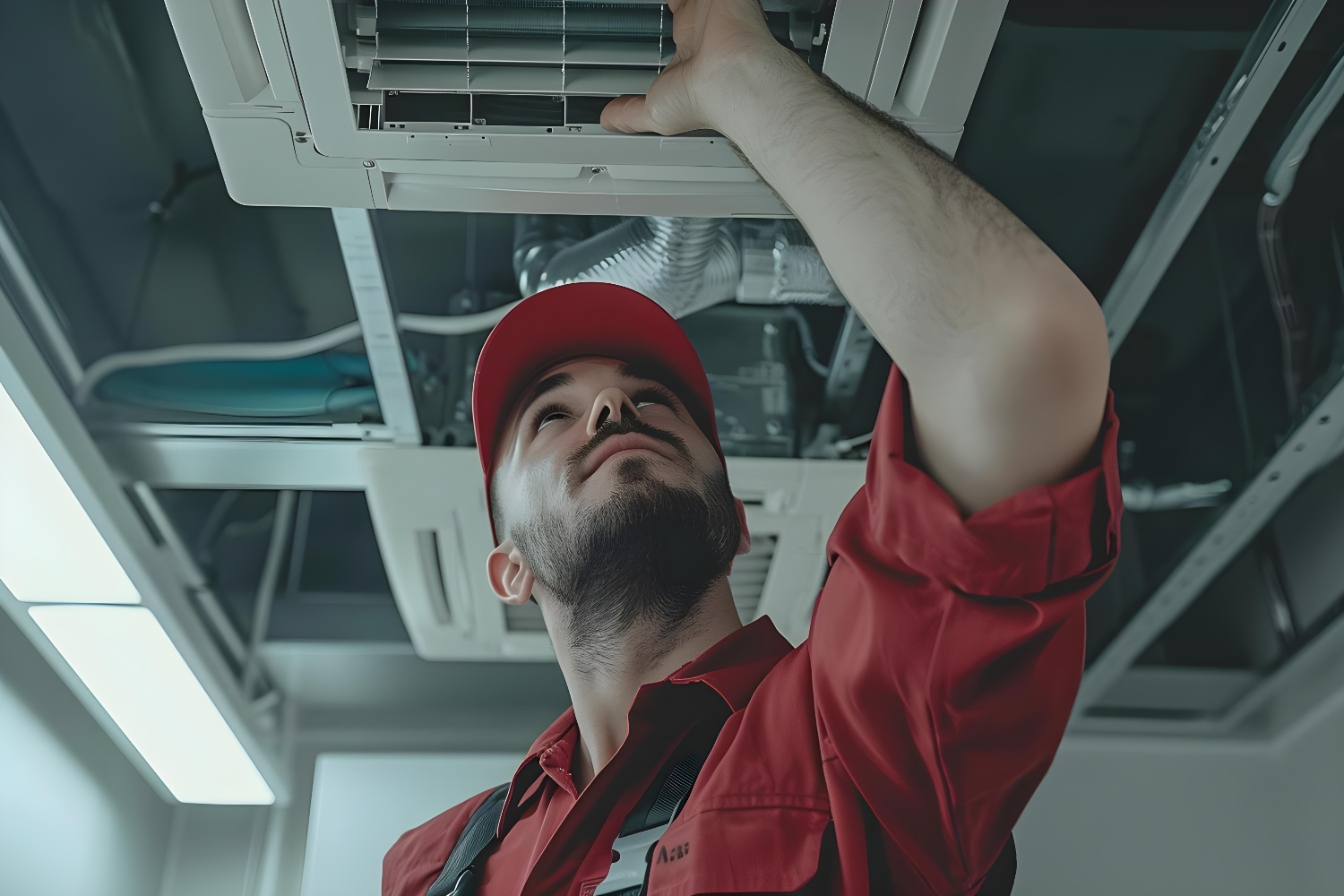
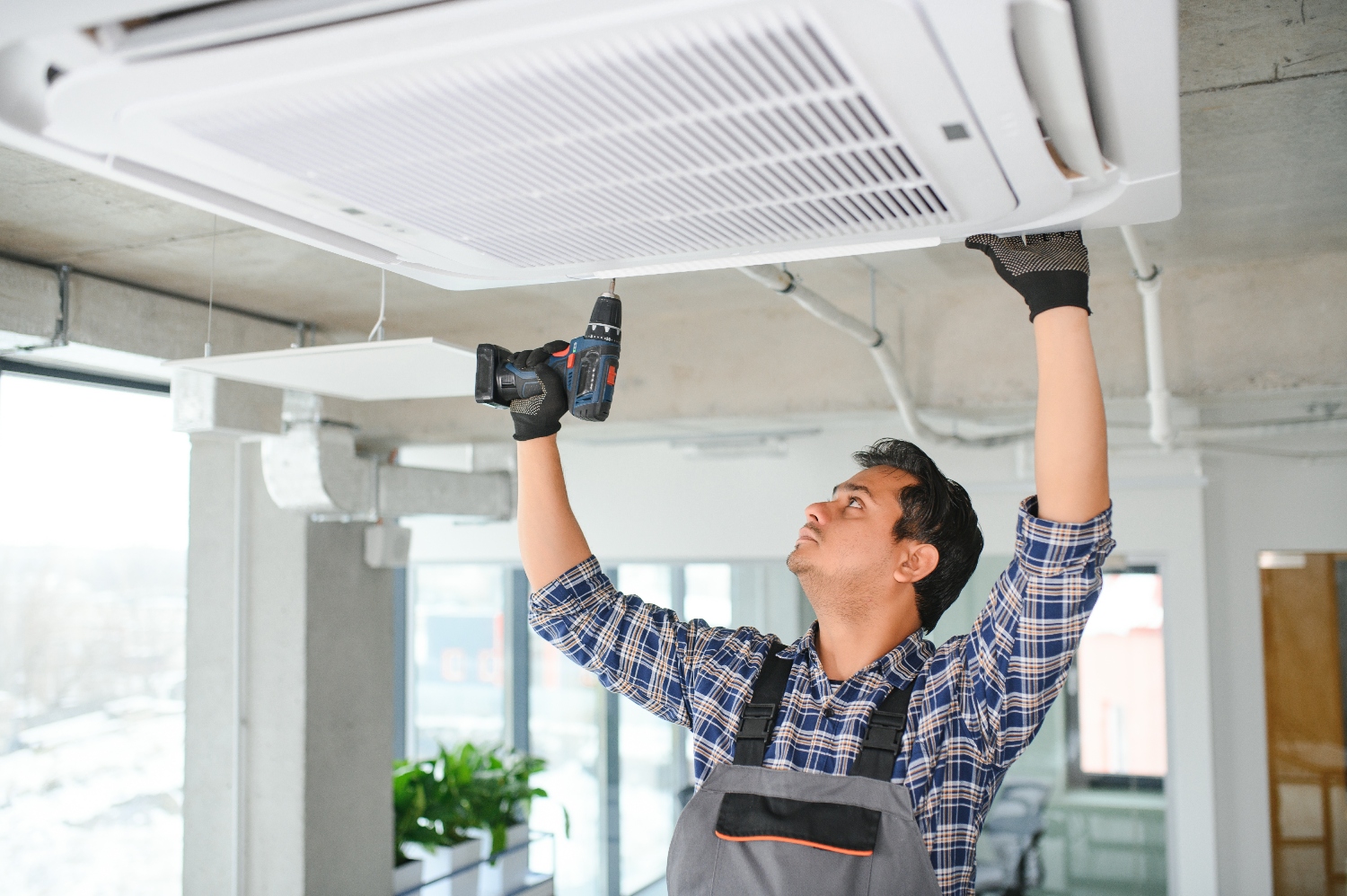
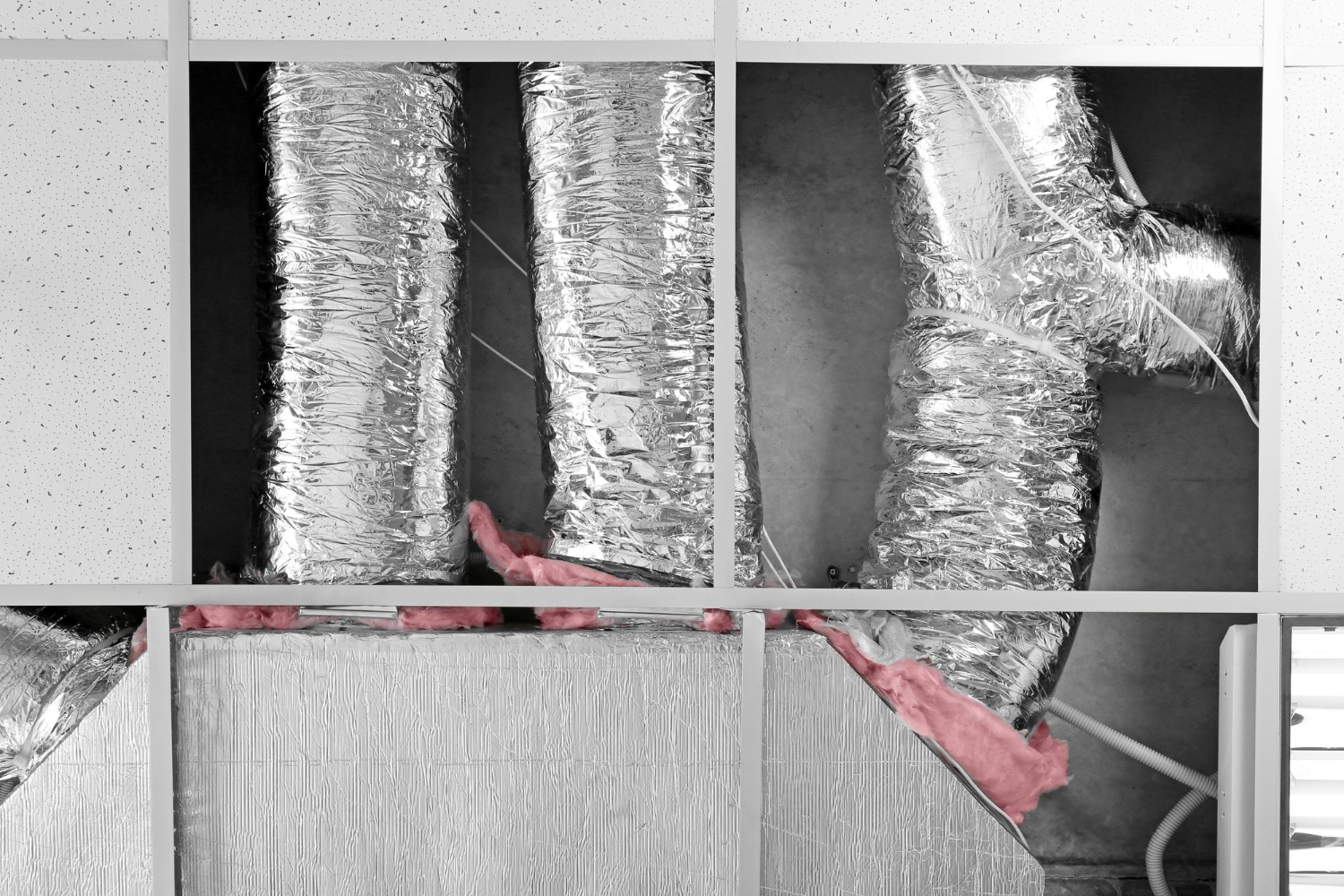































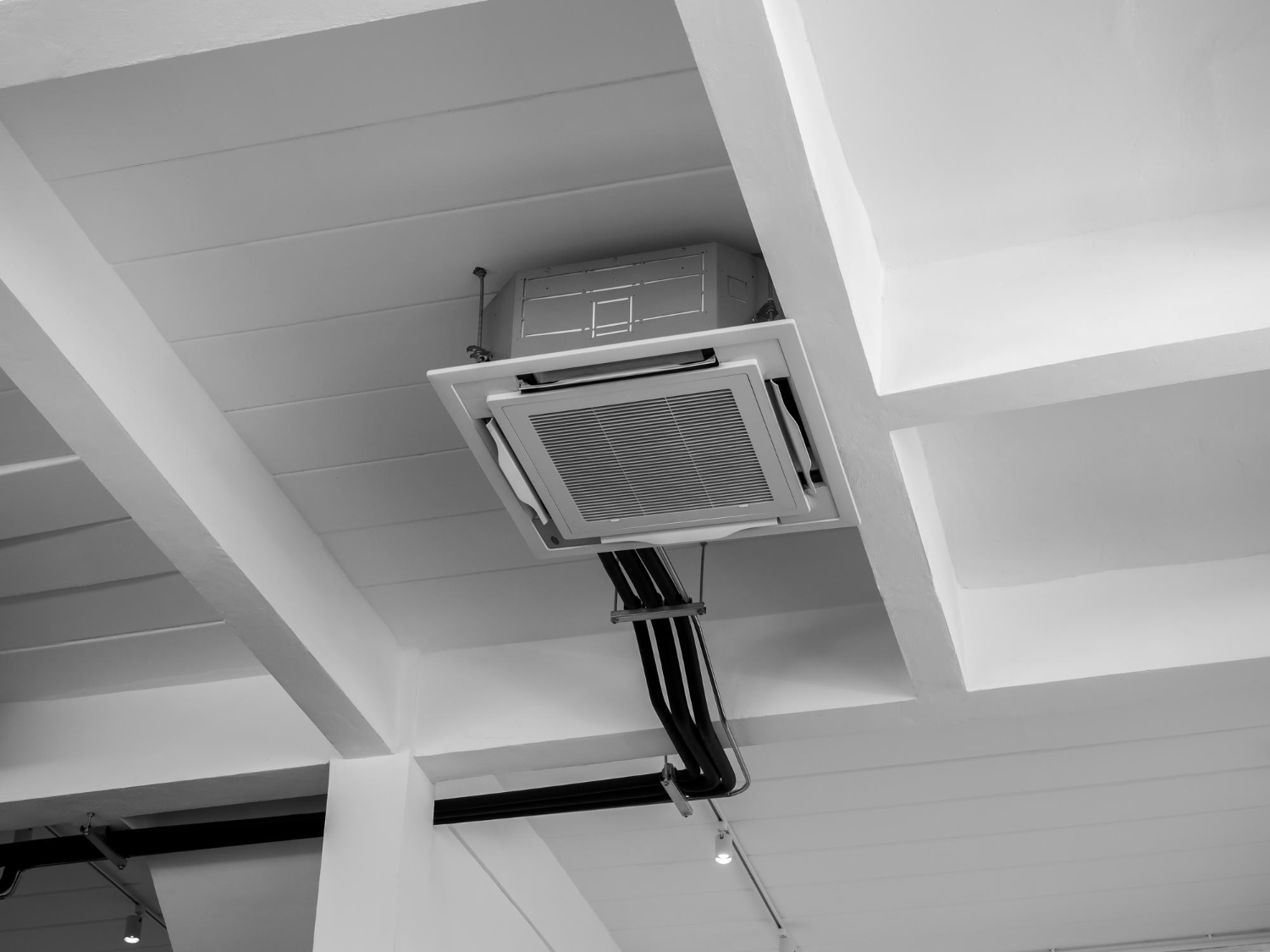




























.jpg)
.jpg)

.jpg)
.jpg)




















